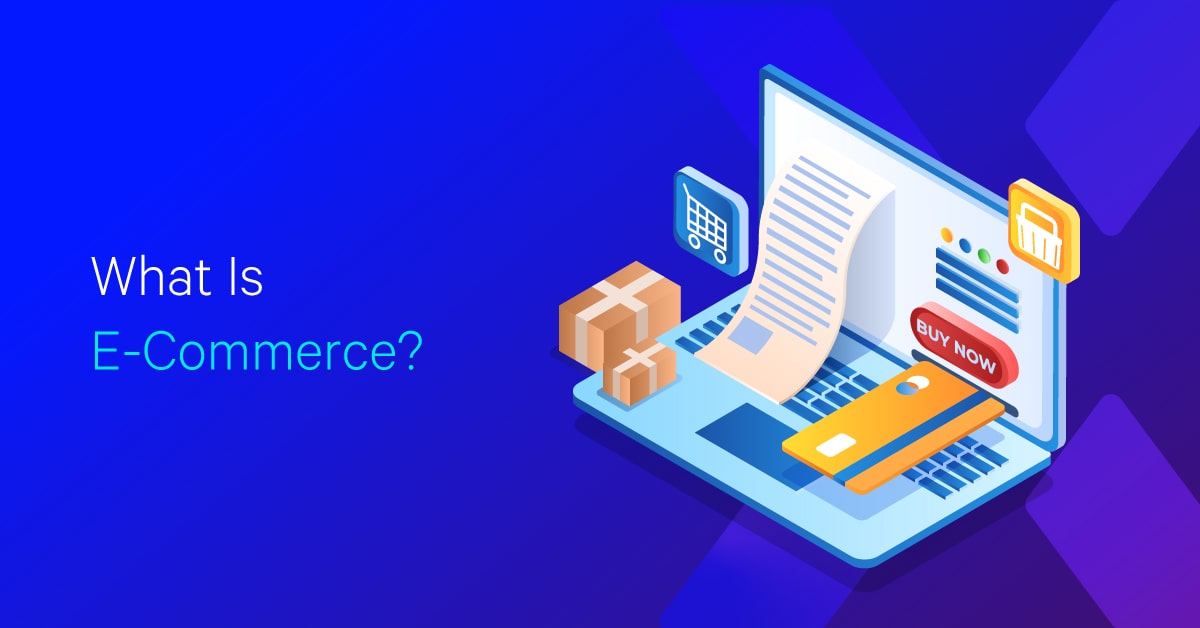What is E-commerce?

Hand off the toughest tasks in SEO, PPC, and content without compromising quality
Explore ServicesThere are many different business models retailers can use to sell their products to their target audience. With the ever-increasing growth of the internet, E-commerce, or selling business-to-consumer via an online store, is a hugely popular and effective way of selling online.
This article looks at what E-commerce is, why you might want to try it, and answer some FAQs regarding E-commerce.
What is E-commerce?
E-commerce, short for electronic commerce, is a term that refers to sellers of goods and services using electronic devices. It began as a way of doing business over the internet, especially through mobile devices such as mobile phones and tablets. It’s an alternative to a brick-and-mortar store with a physical location instead of an E-commerce platform website.
The term ‘e-commerce’ is often used interchangeably with other terms such as ‘electronic shopping’ or ‘online shopping’, with the sale of digital products, such as courses and ebooks, or physical products purchased via the internet and sent in the post.
Stores like Amazon, Alibaba, Etsy, and Ebay are amongst the most widely recognized E-commerce websites, but any website that has the possibility of conducting an online transaction is essentially involved in E-commerce.

Source: Forbes
Why is E-commerce Important?
E-commerce sales is a way of doing business that makes it easier for people to sell and buy goods and services. It is a form of digital technology. E-commerce allows online business owners to keep track of their inventory, customer information, sales records, contact details, and tracking order records.
E-commerce can be beneficial to both businesses and customers.
For businesses – E-commerce allows companies to expand their reach to more customers all over the world. E-commerce can be beneficial to both businesses and customers. It increases the speed and accuracy of sending and receiving messages, supplies, and payments. Businesses can respond faster to their customers, which gives them a competitive edge.
For consumers – E-commerce and online marketplaces allow consumers to purchase goods from the comfort of their own home. It also provides a large amount of information about goods and services, saving consumers time from visiting physical stores.
E-commerce FAQ
Is SEO important for E-commerce?
Search engines and search engine optimization are very important for E-commerce businesses and online retailers looking to grow their online sales. Search engines help consumers find your business online. Search engines also allow your business to gain more visibility when it comes to advertising.
Online SEO tools can help search engines find your website in their listings when someone searches for a particular product or service. It also means that when someone does research about a product or service, they will click on an advertisement that is linked to your site because the search engine has listed you in its listings.
How E-commerce sites improve SEO?
Some simple things can be done to help your target audience find your website search engines and to attract organic search traffic. These include keeping your website content marketing strategies up to date and adding new pages that can improve customer experience.
Having supplementary long-form content that describes your products and services to your customers can help boost your SEO rankings and use influencers and different digital marketing tactics to direct individual customers to your website.
Internal linking is another important aspect of E-commerce SEO, as directing traffic around your website is essential. Focusing on a mix of long-tail and short-tail keywords is also essential.
What are the three types of e-commerce?
There are three primary types of E-commerce business models: affiliate, B2B and B2C.
- Affiliate – affiliate marketing allows individuals to earn commissions on products they refer to the seller. For example, you put an advertisement for shoes on your blog, if anyone purchases those shoes through your blog, you will earn a commission.
- Business-to-Business (B2B) – B2B is when businesses buy or sell goods or services to one another instead of to consumers. For example, an E-commerce business that sells printer ink cartridges would be considered a B2B site.
- Business-to-Consumer (B2C) – B2C is when consumers buy or sell goods or services to each other instead of to businesses. For example, if an E-commerce company sells wedding dresses, they are considered a B2C site.
Summary
Hopefully, this article has given you a better understanding of E-commerce and how it can be used as a business model.
Selecting an E-commerce niche is the same as deciding to sell through a physical location, however, the marketing, store and supply chain management, online payment systems, and other facets of running an online store differ entirely from a brick and mortar business.
To find out more about our E-commerce services, or how our SEO packages can get more individual consumers to your online marketplace, don’t hesitate to contact us today.
Hand off the toughest tasks in SEO, PPC, and content without compromising quality
Explore ServicesWritten by Aaron Haynes on November 20, 2021
CEO and partner at Loganix, I believe in taking what you do best and sharing it with the world in the most transparent and powerful way possible. If I am not running the business, I am neck deep in client SEO.





